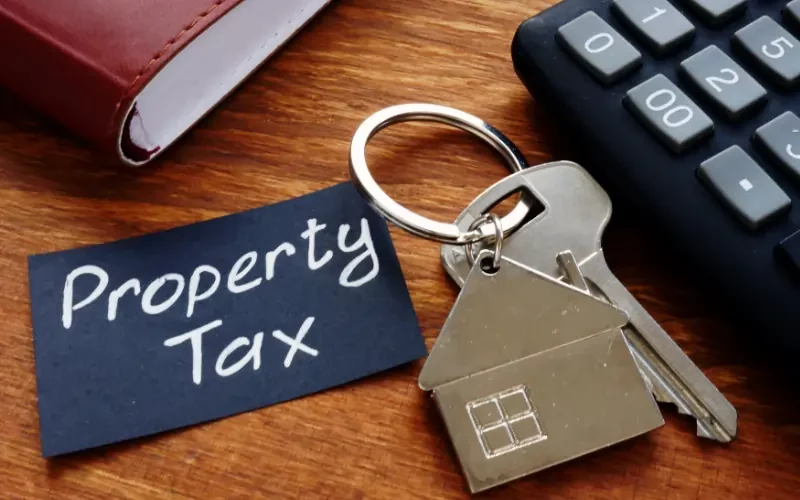
As a homeowner in Wilmington, North Carolina, you more than likely have felt the financial strain of property tax bills lately. Maybe you got your assessment notice in the mail, opened it, and nearly choked on your morning coffee, or perhaps you have been noticing how your Wilmington property tax payments kept creeping up – eating into your monthly budget. Well, you’re not alone in feeling stressed about this situation.
Over the past several months, we have spoken to a lot of residents around the Wilmington area who are dealing with these same financial pressures. And unfortunately, with the way the Wilmington real estate market trends are going, this is becoming a widespread problem. The people we’ve spoken to are from all walks of life – some are retired folks on fixed incomes who never imagined their dream home becoming a financial burden. Some are young families who bought their first homes and are now wondering how they’re going to make ends meet.
If you’re also trying to wrap your head around these rising costs and seriously thinking about selling your home, we’re here to help you understand what is happening and what options you have.
How Property Taxes Work in Wilmington, NC
Figuring out how property taxes work and all the calculations involved in determining what you owe when you’re already stressed about the bills is not high on anyone’s list. But here is the thing – understanding exactly why your taxes have gone up is actually key to figuring out what your next move should be. You can either dig your heels in and fight these rising taxes or seriously consider if it’s time to sell. After you see how this whole thing works and frankly why it’s working against homeowners right now, you will be in a better position to decide what is best for you and your family’s future.
Who Pays and Why Property Taxes Matter
All homeowners, including homeowners in Wilmington, are responsible for annual property taxes on their real property regardless of whether they are struggling to pay or live comfortably. As part of being a citizen who owns property, we all contribute to community services through the tax system, and the quality of local services depends on this revenue.
These taxes provide the important funding for necessary services like schools, fire stations, police departments, road maintenance, and other community services. We can all say we benefit from these services, but the challenge comes when the portion of your income going to property taxes becomes hard to manage. Keep in mind that without enough revenue, the quality of these services could decline, but it’s little comfort when you’re struggling to pay the bills.
Property Tax Assessments in New Hanover County
Here is where things can get a little bit challenging for homeowners – New Hanover County revalues properties every six years, and all real property is permanently listed in county tax records. The most recent revaluation was just announced this year (2025), and needless to say, the results have been shocking for many homeowners.
The value for residential property increased an average of 67.23% since the last assessment, and some areas saw even higher increases. For example, if you live near Carolina Beach, Wrightsville Beach, or Kure Beach, your property assessment may have gone up even higher. This means your tax bill could nearly double, even if the tax rate stays the same, but in many cases, the rates actually went up, too.
Current Property Tax Rates in Wilmington & New Hanover County
The best way to see the whole picture of why your bills have increased so much is to understand your local tax rates – this will also help you better prepare for what you might expect in the future.
Wilmington, NC Property Tax Rate
On a somewhat brighter note, elected officials did decide to lower tax rates for the 2025 fiscal year to help offset some of the assessment increases. The tax rate in the City of Wilmington dropped from $0.42 to $0.306 per $100 of assessed value, which is a pretty big percentage reduction that was part of their proposed budget.
But even with this rate reduction, most homeowners are still getting hit with bills that are significantly higher than what they used to pay. Think about it like this – if your home’s assessed value jumped from $300k to $500k, you would still be looking at a much bigger tax bill despite the “lower” rate, and this increase isn’t uncommon at all. Basically, this is like getting a discount on a car that’s been marked up 70% – you’re still paying more.
The county-wide tax rate for New Hanover County was also lowered from $0.429 to $0.306 per $100 of assessed value. But that rate change won’t be much help if you live in one of the beach communities because you’ll be getting an additional municipal rate on top of that. So even though people are talking about tax rate reductions, coastal homeowners are still facing some serious tax burdens.
Average Property Taxes in Wilmington Compared to NC
As we’ve gone over the current tax rates, you may be wondering what the average property taxes in Wilmington are compared to NC. It may surprise you that the median property tax bill in New Hanover County might be around $2,000, but that number doesn’t explain the whole picture.
The national median property tax bill might seem totally reasonable in comparison, but that’s not very comforting when you’re facing thousands more in annual payments than you budgeted for. With these new assessments, we’ve been seeing homeowners paying upwards of $3K-$5K, or even more each year. This can be really hard to manage if you’re on a fixed income or already struggling to make ends meet; those numbers aren’t just overwhelming – they have a huge impact on your finances.
Currently, median home values range from $418,000 to $462,000. If you’re searching for property information and home values about your home, the county does have an online calculator you can use to estimate what you might owe. Just remember, these calculator tools can’t tell you what you’ll be paying five or ten years from now. That financial unknown is why homeowners are feeling overwhelmed and worried about how they’ll be able to afford staying in their own homes.

Calculating Your Property Tax Bill
All this property tax information and rates shouldn’t be a mystery. Next, we’re going to dive into how this tax machine actually works, because once you see how your bill gets calculated, you’ll understand why so many people feel like the system is stacked against them.
How Tax Assessments Are Determined
To really explain property taxes, we’ll start with “assessed value” – basically, what the county decides your property is worth. The exact number is determined by county assessors who analyze sales data in your neighborhood, look at your home’s current condition, location, and current market trends.
The county’s average home value, which includes the current market conditions, shot up to $581K with a median of $411K after the 2025 revaluation. Once those assessment notices arrived in the mail over the spring, you can imagine the phones started ringing off the hook with homeowners who couldn’t believe what they were seeing. So many folks thought it was truly a mistake on their paperwork.
If you want to double-check your property details, you can do so on the county website page. It will even have an online map where you can look up your property address and see which jurisdictions are benefiting from your contributions.
What Impacts Your Annual Property Tax Bill
Now that we’ve covered assessed value, let’s cover what impacts your annual property tax bill. Ultimately, several factors combine to create your total tax burden. Your property’s assessed value is multiplied by the applicable tax rate from county and municipal jurisdictions. The percentage of what you’ll need to pay depends on factors such as where your home is located and what home improvements you’ve made.
Any improvements you’ve made over the years have likely increased your assessed value even further. Even basic property maintenance and improvements that you thought were necessary to maintain your home’s value have probably contributed to higher taxes, creating a frustrating cycle for homeowners trying to maintain their properties.

Paying Your Property Taxes in Wilmington
If you’re struggling with higher property taxes, understanding your payment options and deadlines becomes even more important.
Due Dates and Payment Options
When are property taxes due? Property taxes for the current fiscal year are due January 5th of the following year. You can imagine this can create a significant financial burden, especially if your escrow account wasn’t properly funded for the increased taxes. Many homeowners have been surprised by substantial escrow shortages requiring large lump-sum payments or significantly higher monthly mortgage payments.
What do payment options look like? You can pay online, by mail, contact the office directly, or visit in person at the government center located at 230 Government Center Drive.
Something you’ll want to keep in mind if you’re facing financial hardship – the county has limited options for payment plans, and these become more restrictive the longer you wait to address the situation.
Penalties for Late Property Tax Payments
Here is where things can get pretty serious – if you’re already struggling to pay your property taxes and you fall behind on your payments, the county doesn’t play around. Late payments will trigger interest and penalties that can turn your already tough situation into a financial nightmare. Sadly, we’ve seen homeowners who were only a few months behind suddenly facing penalties that doubled their debt.
Another kicker to all of this, New Hanover County enforces collection laws with zero sympathy. That may look like a lien placed on your property, or worst-case scenario, they could start foreclosure proceedings. Ultimately, there is a chance you can lose your home over unpaid property taxes. If you are already worried about upcoming bills, you definitely don’t want to wait and hope things get better because ignoring the situation will only lead to penalties that will eat you alive.
Ways to Reduce or Lower Property Taxes
Before you get discouraged, let’s take a look at what relief options are available – there are only a few, but worth mentioning, plus you can always consider selling your house instead.
Tax Exemptions and Relief Programs in New Hanover County
The county does offer some exemptions and relief programs, but the eligibility requirements are pretty restrictive, and will require jumping through some hoops, which can be a real pain.
Available to elderly and disabled homeowners is the homestead exclusion. But to qualify, you have to meet requirements like age, income, and how long you’ve lived in the property – it’s not as easy as being over 65 and owning your home.
For veterans, there is a disabled veteran homestead exclusion that can lower up to $45K of your assessed value. The requirements to do that involve being certified through the North Carolina Department of Veterans Affairs first, then completing a county application process. It can add a significant savings to your property taxes but requires filling out a good amount of paperwork and patience.
The last relief program you can apply for is called the Homestead Circuit Breaker deferment program. This lets some people defer their taxes, but that doesn’t mean the taxes disappear. They will continue to incur interest until the whole bill is paid.
Appealing Your Property Tax Assessment
If you think your assessment is wrong, you do have the option to appeal it. And with all the crazy increases homeowners saw in 2025, appeals were being made left and right. But if you’re reading this now, you’ve unfortunately missed the deadline to appeal, which was May 22nd.
Even if you could appeal and were within the deadline, winning isn’t easy. You would need to submit compelling documentation proving the county didn’t assess your property correctly, and the Board of Equalization and Review doesn’t just hand out victories. Ultimately, the entire process is stressful, time-consuming, and there is no guarantee you will win.
If you’d still like to try to appeal, you can either tackle it yourself or hire someone to help, but when it’s all said and done, it’s going to cost you time and money (or both). Even if future revaluation cycles give you another chance, there is no promise that assessment will be any more reasonable next time around – which can be frustrating.
Property Taxes and Real Estate Decisions
If you’re like many homeowners around here, rising property taxes are not just an inconvenience; they are making people make tough decisions about whether they can afford to stay in their homes.
How Taxes Affect Buying or Selling a Home in Wilmington
If you’re thinking about selling, the current market conditions actually may work in your favor. Homes are selling in approximately 32 days with median prices around $463,000. All the things to do in Wilmington continue to attract potential buyers, maintaining strong demand despite the tax situation.
That doesn’t go without saying that high property taxes are also making some potential buyers more cautious. Smart buyers are using the county calculator to estimate their potential tax obligations, and some are being scared away by the high ongoing costs of homeownership in our area.
High Property Taxes? When Selling Fast May Be the Right Move
If you’ve reached the point that your property taxes have become unmanageable, or if you’re worried about future increases, selling might be your best option for financial relief. This is especially true if you’re facing other financial pressures, health issues, or life changes that make the ongoing tax burden unsustainable.
Fortunately, we buy houses in Wilmington and work with many homeowners who are exactly in this situation. Rising property taxes have created financial stress for families throughout the area, and we understand that sometimes the best solution is to sell quickly and move to a more affordable situation.
As local cash home buyers in Southport and throughout the area, we specialize in helping homeowners who need to sell their house fast in Jacksonville or anywhere in New Hanover County. Unlike traditional sales that can take months and involve uncertain results, we provide solutions for homeowners facing financial pressure.
When you get a cash offer today, you remove the uncertainty of the traditional sales processes. You won’t have to worry about whether buyers can qualify for financing, whether inspections will reveal expensive repair needs, or whether the sale will fall through at the last minute. For anyone searching for quick relief from mounting property tax obligations, look no further; this option provides immediate certainty.
We handle everything from paperwork to coordinating the closing process, and can often close within days rather than months. This means you can quickly move to a more affordable property, whether that’s a smaller home with lower taxes, a rental property, or relocating to an area with a lower cost of living.

Conclusion
Rising property taxes in Wilmington are causing real financial hardship for families. When assessments jump 60% overnight and eat up a scary percentage of your income, existing relief programs feel like band-aids on a broken leg. (If you even qualify for relief programs)
If those tax bills are keeping you up at night, you’re not stuck, so don’t stress. Some homeowners are waiting for elected officials to provide relief, but there’s no guarantee that it’ll happen anytime soon. For many, the constant financial stress makes selling the smarter choice.
We get it – this might not be the house you planned to leave, but sometimes protecting your family’s financial wellbeing comes first. Whether you tough it out or explore selling for a fast, stress-free solution, choose what lets you sleep at night again.
If you’re leaning toward selling, we offer a straightforward home-buying process with no games or uncertainty – just a clear path out from under crushing tax bills.
The bottom line? You deserve to live somewhere you can actually afford. If Wilmington’s property taxes have made that impossible, it’s okay to move on. Your peace of mind is worth more than any house.
